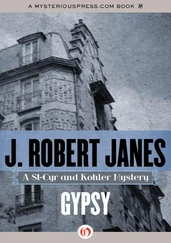Had he been told to do so? wondered Ines. Had he?
‘ Peut-etre ,’ muttered Laval. Should he have this girl arrested? One whose life was still ahead of her? ‘Go then. Take her with you. Ah! I almost forgot.’
Digging into his overcoat pocket, he pulled out the telegram he had received from Gestapo Boemelburg in Paris, and handed it over.
‘“ Karneval ,” Hermann. “ Kolmar. Contact Kommandant Rasche. Hangings, Stalag III Elsass. Heil Hitler.”’
Alsace and what was now the Reich. Louis would have to cross the frontier. He’d have no authority there, would …
‘A POW camp, Louis. A little warning of Boemelburg’s for us to keep quiet about things here or else.’
But what kind of Carnival ? wondered St-Cyr, looking up to that God of his. What kind of a warning? Paris … they’d both wanted desperately to get back to Paris.
Rasche … Hadn’t he heard that name before? wondered Kohler, not liking the thought but conscious of Louis. ‘Maybe this Kommandant won’t keep us too long, mon vieux ,’ he said, the memories flooding over him like ice-cold spa water, for not only did he damned well know who Rasche was, he’d spent nearly two years in such camps, had learned to speak and write French while there, hadn’t known how useful it would become.
The Premier handed the chief inspector a packet of Gitanes and, tipping his hat, grunted, A bon chat, bon rat, mes amis. Tit for tat. One good turn deserves another. Au revoir , mademoiselle. A safe journey.’
Through the soot-streaked windows of their compartment, Ines watched as Monsieur le Premier shouldered his way along the platform, to finally disappear from view. St-Cyr had lighted a cigarette – one only – and sensing, she surmised, that it was a moment he and his partner must share, had passed it to Herr Kohler.
Two men from opposite sides of this war, thrown together by chance and common crime, Ines told herself, and taking a pencil and paper from her handbag, sketched the two of them as they were. No smiles, each so different, yet both grave with concern for the other and this new task, their respective loved ones also, and for what would happen to them and to France when spring finally came.
Tue-mouches – Flykiller – was the nom code , the code name, of the resistant Jean Schellnenberger, who was captured, interrogated and then shot in Dijon in 1942.












